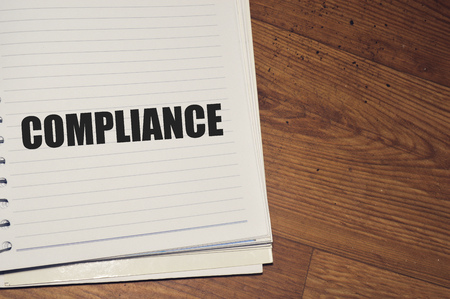Understanding Homeowners Insurance Claim Denials
If you’ve ever filed a homeowners insurance claim and received a denial, you know how frustrating and confusing the process can be. Insurance companies have their own language and processes that aren’t always straightforward, leaving policyholders feeling powerless. It’s crucial to understand why claims get denied in the first place, so you can take informed steps if it happens to you. Common reasons for denial include issues like insufficient documentation, damage not covered by your policy (such as floods or earthquakes under standard policies), late filing, or suspicion of fraud. Insurers often use phrases like “not a covered peril,” “policy exclusions apply,” or “failure to mitigate loss” in their denial letters. Knowing these terms and the fine print in your policy can make all the difference when you’re facing a claim rejection. As a homeowner, being aware of the insurer’s tactics and maintaining detailed records puts you in a much stronger position should you need to challenge a denial.
2. Your Legal Rights After a Denial
If your homeowners insurance claim gets denied, it’s essential to know that you’re not powerless. U.S. law offers strong consumer protections for policyholders facing claim denials. Understanding both your rights and obligations can help you respond effectively and protect your financial interests.
Consumer Protections Under U.S. Law
Insurance companies in the United States are regulated at the state level, but there are common standards they must follow. Here’s an overview of what you can expect:
| Right | Description |
|---|---|
| The Right to a Written Explanation | Your insurer must provide a clear, written reason for denying your claim. |
| The Right to Appeal | You have the right to appeal the decision within a certain timeframe, usually detailed in your policy. |
| The Right to Fair Treatment | Insurers are required to handle claims fairly and in good faith; unfair denials can be challenged. |
| The Right to Access Records | You may request access to the documents or evidence the insurer used to make their decision. |
| The Right to File a Complaint | If you believe your claim was mishandled, you can file a complaint with your state’s Department of Insurance. |
Your Policyholder Obligations
Alongside your rights, you also have obligations as a policyholder. Meeting these responsibilities strengthens your position if you need to challenge a denial:
- Timely Notification: Report losses as soon as possible after an incident.
- Provide Documentation: Submit all requested information, such as photos, repair estimates, and inventories of damaged property.
- Mitigate Further Damage: Take reasonable steps to prevent further loss while waiting for the claim process.
- Cooperate with Investigations: Respond promptly and honestly to requests from claims adjusters or investigators.
Key Takeaway
Knowing your legal rights and fulfilling your obligations after a homeowners insurance claim denial sets you up for a successful appeal or further action. If you’re unsure about your next steps, consult with an insurance attorney or reach out to your state’s regulatory agency for guidance.

3. Reviewing Your Policy and Denial Letter
When your homeowners insurance claim is denied, your first step should always be a thorough review of both your policy and the denial letter. Insurance policies are complex documents filled with industry jargon, exclusions, and limitations that can easily trip up even the savviest homeowner. Take your time to read the fine print and compare it directly with the reasons provided in the denial letter.
Understand What’s Covered—and What’s Not
Start by locating the relevant sections in your policy that pertain to your specific claim. Look for coverage details, common exclusions (such as flood or earthquake damage), and any special conditions or endorsements that might apply. Make sure you understand the language used; terms like “sudden and accidental” or “wear and tear” can have specific definitions in insurance law.
Spotting Discrepancies and Misunderstandings
Carefully match the insurer’s reasoning in their denial letter against your policy. Are they citing an exclusion that doesn’t actually apply? Did they misinterpret what caused the damage? Sometimes claims are denied because of simple misunderstandings or clerical errors. If something doesn’t make sense, highlight it for further discussion.
Tips for Effective Policy Review
– Keep detailed notes as you go through your documents
– Highlight terms or phrases you don’t understand and consider consulting a professional
– Double-check dates, amounts, and descriptions for accuracy
– Pay attention to any deadlines for responding or appealing
A methodical approach can reveal mistakes or oversights in the denial process, giving you strong footing for your next steps—whether it’s seeking clarification from your insurer or preparing an appeal.
4. Steps to Take Immediately After a Denial
If your homeowners insurance claim gets denied, it’s crucial not to panic or act impulsively. Taking the right steps immediately after receiving a denial can significantly improve your chances of a successful appeal or negotiation. Here’s what you should do next:
Document All Communications
Start by meticulously recording every interaction with your insurance company. Keep track of dates, names of representatives, and summaries of conversations. This documentation is vital if you need to escalate your claim or seek legal help later.
| Action | Purpose | Recommended Tool/Format |
|---|---|---|
| Email follow-ups | Written record of discussions | Email threads, digital folders |
| Phone call logs | Verify timelines and statements | Notes app, physical notebook |
| Save letters/notices | Proof of insurer’s position and communication | Scanned PDFs, physical copies |
Request a Detailed Explanation for Denial
You have the right to know exactly why your claim was denied. Don’t settle for generic explanations—ask for specifics in writing. This clarity helps you identify errors, misunderstandings, or missing information that could be corrected.
Questions to Ask Your Insurer:
- Which policy language or exclusion was cited?
- Was any evidence found insufficient or missing?
- Is there an appeals process, and what are the deadlines?
- Can additional documents or photos be submitted?
Gather Supporting Evidence
If you believe your claim was wrongly denied, start collecting all relevant supporting evidence. This may include:
- Photos and videos of the damage (before and after if possible)
- Repair estimates from licensed contractors
- Receipts for emergency repairs or temporary lodging expenses
- Witness statements from neighbors or first responders
- A copy of your insurance policy highlighting covered events and exclusions
Create a Claim File Folder
An organized file makes it easier to reference key documents during appeals or negotiations. Consider using both digital and physical folders to store:
- Your original claim submission and denial letter
- All correspondence with the insurer (emails, letters, notes)
- Your gathered evidence and documentation as listed above
- A timeline of events related to the incident and claims process
The Bottom Line: Be Proactive and Thorough
The way you respond in these first critical days can set the tone for the rest of your case. By documenting communications, pushing for clear explanations, and assembling robust supporting evidence, you maximize your chances of overturning a denial—or at least negotiating a better outcome with your insurer.
5. How to Appeal or Dispute the Denial
If your homeowners insurance claim has been denied, you have the right to challenge the decision through a formal appeals process. Understanding how to navigate this process can significantly improve your chances of a successful outcome.
Understand the Reasons for Denial
Start by carefully reviewing the denial letter from your insurer. This document will outline the specific reasons why your claim was rejected. Knowing these details is critical, as your appeal must directly address the insurer’s rationale and provide supporting evidence.
Gather Necessary Documentation
Compile all relevant records, including:
- Your original policy and any endorsements
- The denial letter from your insurance company
- Photos, receipts, and estimates related to your claim
- Correspondence between you and the insurer
The more thorough your documentation, the stronger your appeal will be.
Meet All Deadlines
Insurance companies in the U.S. typically set strict deadlines for filing an appeal—sometimes as little as 30 or 60 days after receiving your denial notice. Check both your policy and the denial letter for any time limits, and submit your appeal promptly to avoid missing your opportunity for review.
Draft a Formal Appeal Letter
Your appeal should be submitted in writing. Clearly state why you believe the denial was incorrect, reference specific policy language that supports your position, and include any additional evidence that strengthens your case. Stay professional and concise; this is a business communication.
Escalation Options Within the Insurance Company
If your initial appeal is denied, don’t give up. Most insurers have a multi-level internal review process. You can request a second review by a claims supervisor or manager. If you still disagree with their decision, ask about further escalation options—some companies offer mediation or have an ombudsman program.
Consider External Resources
If internal appeals are exhausted without resolution, you may contact your state’s Department of Insurance for guidance or consider hiring a public adjuster or legal counsel to advocate on your behalf.
Navigating an appeal can be complex, but by following these steps and keeping detailed records at every stage, you maximize your chances of overturning an unjust denial and protecting your property investment.
6. When to Seek Professional Help
Sometimes, dealing with a denied homeowners insurance claim can feel overwhelming, especially when the stakes are high and you’re unsure about your next move. In such cases, knowing when to bring in outside help can make all the difference. Here’s how to evaluate your situation and choose trustworthy professionals.
When Should You Consult a Public Adjuster?
If you believe your insurer has undervalued your loss or if the claims process becomes too complex to handle on your own, it may be time to reach out to a licensed public adjuster. These professionals work on your behalf—not the insurance company—to review your claim, assess damages accurately, and negotiate for a fair settlement. Hiring a public adjuster is especially helpful for large, complicated claims or if you feel the insurer isn’t treating you fairly.
When Is It Time to Hire an Attorney?
If your claim has been denied without clear explanation, if you suspect bad faith practices by your insurer, or if negotiations have completely broken down, consulting an attorney who specializes in insurance law is a smart move. An experienced attorney can explain your legal rights, advocate for you in disputes, and even file lawsuits if necessary. This route is often pursued when substantial amounts of money are at stake or when there’s evidence the insurer isn’t complying with state laws.
Involving Your State Insurance Commissioner
If you’ve exhausted all options with your insurance company and professional advocates but still feel mistreated, you can file a complaint with your state’s Department of Insurance. State commissioners oversee insurers’ conduct and can investigate whether your claim was handled properly under state regulations. While they won’t resolve every dispute directly, their intervention often prompts insurers to take complaints more seriously and sometimes leads to resolution.
How to Choose Credible Professionals
When selecting a public adjuster or attorney, look for state licensing, relevant experience in property claims, strong references from previous clients, and transparent fee structures. Avoid anyone who pressures you into signing contracts immediately or makes guarantees about results—credible pros will always explain the risks involved and set realistic expectations. For state insurance commissioners, use official government websites to find legitimate contact information and complaint forms.
Final Thought
No matter how frustrating a denied claim may be, remember that resources exist to protect your rights as a homeowner. Knowing when—and whom—to ask for help can empower you to secure the coverage you deserve while minimizing unnecessary risks.


